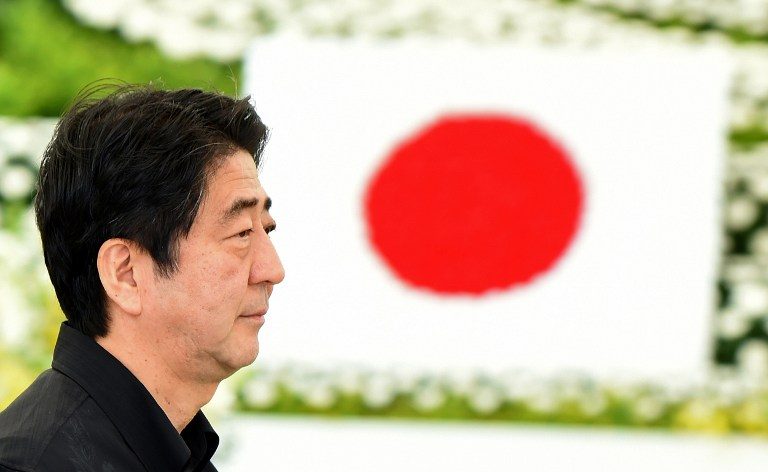SUMMARY
This is AI generated summarization, which may have errors. For context, always refer to the full article.

The Indonesian government is feeling the heat after Japanese investors reportedly have threatened to relocate factories and reconsider investment plans after a 150-km fast-train project from Jakarta to Bandung was given to Chinese investors. The Japanese side thought they had won the deal.
Strangely, neither China nor Indonesia first announced the US$5 billion project. It was first announced by a Japanese official who told local media his country had lost out. On Friday, October 16, the two countries officially signed the deal.
“The policy suddenly changed — it’s hard to understand how the Chinese plan was adopted, and I can only describe it as extremely regrettable,” said Yoshihide Suga, the Japanese chief cabinet secretary said late last month in Tokyo. (READ: Indonesia’s bullet train deal with China: ‘Delusional,’ no coordination)
Money talks
An official from Jakarta’s Ministry of State Enterprises said the decision “was based on the financial, not purely on the technical,” with China offering to take on the project without a loan guarantee from the Indonesian government.
“The development will not use any part of the state budget, directly or indirectly. The government will not provide any viability gap fund. The cooperation will be under a business-to-business scheme,” President Joko Widodo was quoted as saying.
The project is also seen as part of China’s sweeping global push to build infrastructure as part of its New Silk Road initiative. Indonesia is a strategic place for both countries as they compete for influence.
The news came as a blow for Japanese investors, considering that the Indonesian government has sent mixed messages on the project. An Indonesian government spokesman, however, said that the government understands Japan’s disappointment and urged Tokyo not to relocate their investments elsewhere as there are many more infrastructure projects needed to modernize Indonesia’s creaking public services.
China and Japan are largely seen as the chief competitors for Indonesia’s plans to spend tens of billions of dollars on infrastructure over the next few years, largely because the two countries offer very competitive government-backed financing packages. Japan is already building Jakarta’s first modern mass transit rail system
Abe defeated
The contract award is a setback to the geopolitical aspirations of Japanese Prime Minister Shinzo Abe, who has made it a major foreign policy goal to check rising Chinese influence in the region by using loans and grants to fund important infrastructure projects.
Japan also seeks to use the Asian Development Bank, which it effectively controls by traditionally appointing the bank’s president. Abe himself has pledged ¥750 billion (US$6.1 billion) in regional aid as part of a plan to increase infrastructure funding by 25 percent.
Indeed, according to Bloomberg, the ADB has increased its lending in the region by 17% to keep up with the Asian Infrastructure Investment Bank proposed by China President Xi Jinping and launched with considerable fanfare last October, although no lending plans have been announced.
The AIIB, as it is called, is supported by 37 regional and 20 non-regional members. Some 53 prospective founding members have signed the Articles of Agreement that form the legal basis for the proposed bank.
Although the Japanese thought they had won the project, some observers anticipated that Jokowi would give it to the Chinese, as his government has engaged in billions of dollars in infrastructure projects with Beijing. Last year, Jokowi also demanded a bigger role in the AIIB, by proposing that the bank open its headquarters in Jakarta.
Wrong signal for investors
However, critics say the confusion over dealing with Japan and China has sent the wrong signals to investors.
First, Jokowi said the government would scratch the whole plan for technical reasons, saying that the railway wouldn’t reach its maximum speed, then he mulled a new plan to develop a medium-speed train instead, telling both China and Japan to submit new bidding schemes.
The Japanese and Chinese envoys to Indonesia didn’t hide their displeasure regarding the government’s decision to cancel the original plan after the two had competed for months to secure the contract. The new train will be “fast” but not “high-speed.” – Rappler.com
Read the rest of this article on Asia Sentinel, a platform for news, analysis and opinion on national and regional issues in Asia.
READ MORE:
Add a comment
How does this make you feel?
There are no comments yet. Add your comment to start the conversation.